Farmers will be able to use blacklisted pesticides linked to serious harm in bees after the UK government temporarily lifted an EU ban.
Opponents called the decision “scandalous” and criticised the government’s secrecy, which The Guardian revealed has included gagging its own expert advisers. But prime minister David Cameron defended the move. “We should follow the science,” he said.
Bees and other pollinators are essential for many crops but are in decline due to pesticides, loss of habitat and disease. Over 500,000 people signed a petition opposing the suspension of the ban.
Two neonicotinoid pesticides can now be used for 120 days on about 5% of England’s oil seed rape crop. Products from chemical giants Bayer and Syngenta will be deployed to ward off the cabbage stem flea beetle.
An earlier “emergency” application by the National Farmers’ Union for a nationwide lifting of the ban was rejected.
“The NFU has worked relentlessly to submit a robust application and we’re glad to finally see a positive result,” said NFU vice president Guy Smith. “However, we know that this isn’t enough – flea beetle threat is a widespread problem on a national scale and the extremely limited nature of this authorisation is unfortunately not going to help the vast majority of farmers in need of the protection.”
The NFU said the late timing of the decision would make it near impossible for many farmers to take advantage of the suspension of the ban.
Friends of the Earth bees campaigner Paul de Zylva said: “It’s scandalous that the government has caved in to NFU pressure. Ever more scientific evidence shows just how dangerous these chemicals are to bees and other pollinators.”
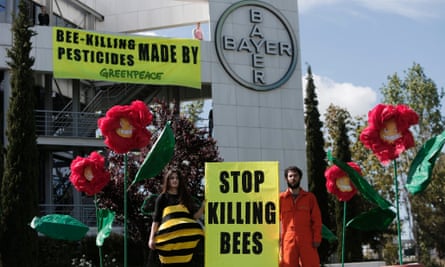
De Zylva said: “The NFU’s campaign to undermine the pesticides ban has given an impression of large crop losses nationwide, but this is not supported either by the scientific evidence or harvest figures.”
Ministers have not made public the information provided by the NFU, citing commercial confidentiality.
The Department for Environment, Food and Rural Affairs (Defra) also told its expert committee on pesticides (ECP) to halt its normal practice of publishing the minutes of meetings at which the neonicotinoid applications were discussed, in order to avoid “provoking representations from different interest groups”.
Barry Gardiner, Labour’s shadow Defra minister, said: “I have written to environment secretary Liz Truss challenging her to release whatever scientific evidence she considers could possibly justify this decision. Public confidence cannot be maintained if she refuses.” The decision was made public after parliament ended for the summer, making scrutiny by MPs impossible, he said.
Gardiner said the Europe-wide ban on neonicotinoids was an essential element of the protection of pollinating insects. “By lifting the ban government is giving in to short term commercial pressures at the expense of the future of British of farming.”
A Defra spokeswoman said: “We make decisions on pesticides based on the science only once the regulators are satisfied they are safe to people and the environment. Based on the evidence, we have followed the advice of the ECP and our chief scientist that a limited emergency authorisation of two pesticides should be granted in areas where oil rape crops are at greatest risk of pest damage.”
Cameron, visiting the Royal Welsh Show on Thursday, said: “The EU put in place the ban on neonics, but if scientists start telling us that these things are safer than they thought then perhaps we can licence them.”
Over 500,000 people signed a 38 degrees’ petition to “keep the ban on bee-killing pesticides”. Rebecca Falcon, at 38 Degrees said: “The secrecy around this application is deeply worrying. If the government has nothing to hide, why is it withholding vital information from the public?”
Nick von Westenholz, chief executive of the Crop Protection Association of pesticide manufacturers, said: “Many farmers will still be unable to access this vital technology and will continue to struggle to protect their crops this coming season. The CPA will continue to press for evidence-based regulation, rather than an over-precautionary approach.”
The EU neonicotinoid ban began in December 2013, after the European Food Safety Authority judged them to pose an unacceptable - and in some cases acute - risk to bees. Scientific research has linked the pesticides to huge losses in the number of queen bees produced and big rises in “disappeared” bees – those that fail to return from feeding trips. The ban will be reviewed at the end of 2015.
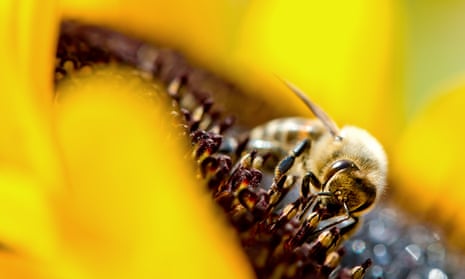

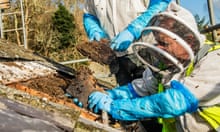

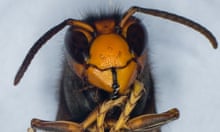
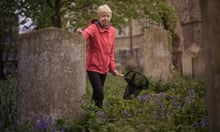
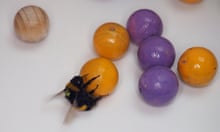
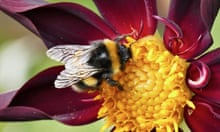
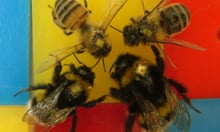
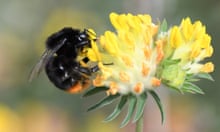
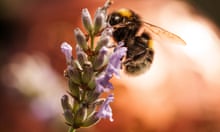
Comments (…)
Sign in or create your Guardian account to join the discussion